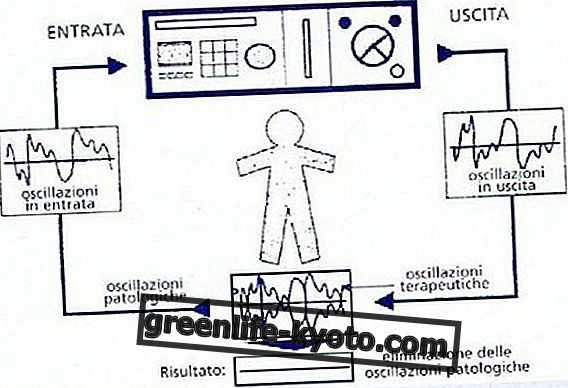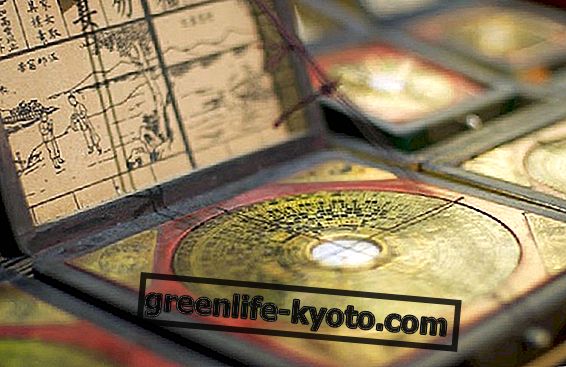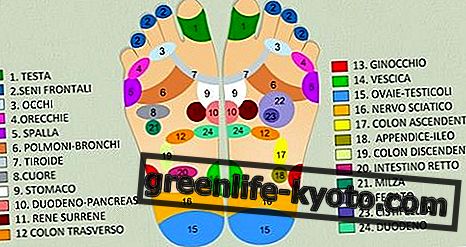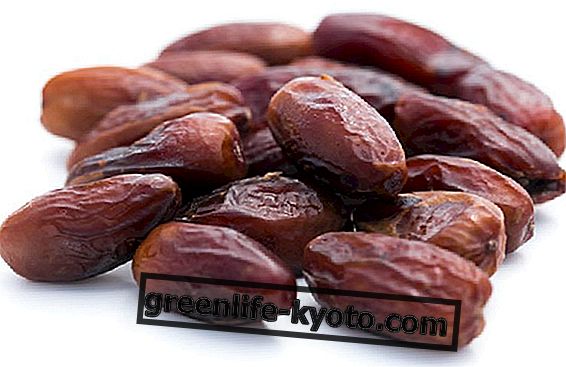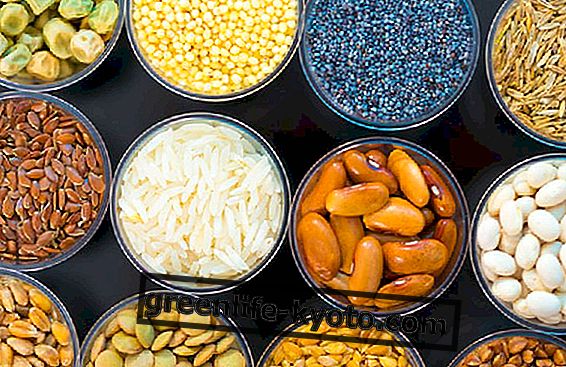
The Mediterranean diet is a healthy and balanced diet, useful for staying healthy and fit and to which you can be inspired to follow a balanced vegan diet that combines health with ethics. So let's see how to adapt the Mediterranean diet to a vegan lifestyle, with example menus and recipes .
Mediterranean diet and vegan diet: similarities and differences
Those who choose to follow a vegan diet do so above all out of respect for animal life and, secondly, to protect their health and the environment.
A vegan diet is certainly ethical and has a lower ecological footprint than an omnivorous diet.
As for the impact on health, the Mediterranean and vegan diets - if followed correctly - can both protect the body from chronic and degenerative diseases, keep the body healthy and fit longer and make us grow old better.
However, the vegan diet, compared to the Mediterranean diet, must be developed in such a way as to guarantee all the nutrients needed to avoid deficiencies that are dangerous to health.
The Mediterranean diet is a healthy and balanced diet and is considered one of the best diets to stay healthy and fit.
The Mediterranean diet includes daily consumption of fruit, vegetables, legumes, cereals, olive oil and moderate consumption of milk and derivatives, meat and eggs, while fish is recommended twice a week.
The consumption of products of animal origin guarantees the supply of high quality proteins and vitamins that are not contained in vegetables, such as vitamin B12, while the consumption of fish guarantees the supply of omega-3 essential fatty acids.
The vegan diet, on the other hand, excludes any type of product of animal origin, so those who have chosen to follow a vegan lifestyle do not consume milk and derivatives, meat, fish, eggs, honey and other bee products; if done correctly, the vegan diet can still be balanced and safe and promote good health.
Compared to the Mediterranean diet, the vegan diet foresees a daily consumption of nuts and seeds to ensure the supply of Omega-3, and a greater intake of legumes, the main source of protein for those who have chosen to exclude foods of animal origin: in the vegan diet, in fact, it is recommended to consume two portions a day of nuts and seeds while the daily portions of legumes rise to five, three more than those recommended in the Mediterranean diet.
Vegan diet: how to follow it correctly
The vegan diet, excluding any food of animal origin, exposes the body to the deficiency of vitamin B12, since this vitamin is not found in any vegetable food: to avoid it, it is necessary to take foods fortified with vitamin B12, such as cereals for the breakfast, or vitamin B12 supplements, available at the pharmacy.
If followed incorrectly, the vegan diet can also lead to protein, iron, calcium and Omega-3 deficiencies.
As far as proteins are concerned, the main protein source in a vegan diet inspired by the Mediterranean diet is legumes : 5 portions a day are recommended (a portion is equal to 50 g of dried legumes) to be consumed with cereals to improve the profile amino acid.
To ensure the body the correct intake of calcium it is advisable instead to drink water rich in this mineral and to consume nuts and seeds.
Iron is found in different vegetables but is not bioavailable: to increase absorption, it is good to consume fresh vegetables rich in vitamin C along with vegetables that contain iron.
Finally, Omega-3s are found in walnuts and some seeds, such as those from chia flax that can be added to salads or soups.
Mediterranean vegan diet: example menu
> Breakfast : 1 glass of rice milk with 30 grams of cereal fortified with vitamin B12 and calcium. 1 seasonal fruit.
> Snack : 1 seasonal fruit and 30 grams of walnuts
> Lunch : rice and lentils, prepared with red onion, extra virgin olive oil and a little salt, 1 portion of mixed salad topped with a teaspoon of olive oil and two teaspoons of flaxseed, 1 seasonal fruit.
> Dinner : farinata, 1 bowl of raw or cooked vegetables seasoned with extra virgin olive oil and a little salt, 1 slice of wholemeal bread, 1 seasonal fruit.
Mediterranean vegan diet, recipes
A first: salad of legumes and cereals
Ingredients for 4 people
> 200 g of barley
> 200 g of lentils
> 50 g of salad
> 1 apple
> 2 fresh tomatoes or 4 or 5 dried tomatoes
> olives
> fresh aromatic herbs
> extra virgin olive oil
> salt
> 1 mixed seed bucket
Preparation
L barley and lentils in salted water, in two different pots; drain, add a tablespoon of oil and let cool. Place the barley and rice in a bowl, add the rest of the ingredients and stir.
One second: omelette without eggs
Ingredients for 4 people
> 150 g of chickpea flour
> 300 g of water
> 5 sage leaves
> 150 g of seasonal vegetables
> extra virgin olive oil
> salt
Preparation
Weigh the chickpea flour in a bowl, add the water and a tablespoon of extra virgin olive oil and mix well with a whisk to prevent lumps from forming. Add the washed and finely chopped sage and let the batter rest for at least thirty minutes.
Meanwhile, clean and cook the seasonal vegetables: you can opt for broccoli, leeks, spinach, peppers, onions, to stir-fry with a tablespoon of extra virgin olive oil and season with herbs and spices of your choice.
Then add the cooked vegetables to the batter and cook for about twenty minutes in a slightly greased non-stick pan, turning the omelette halfway through cooking. Allow to cool before serving.

